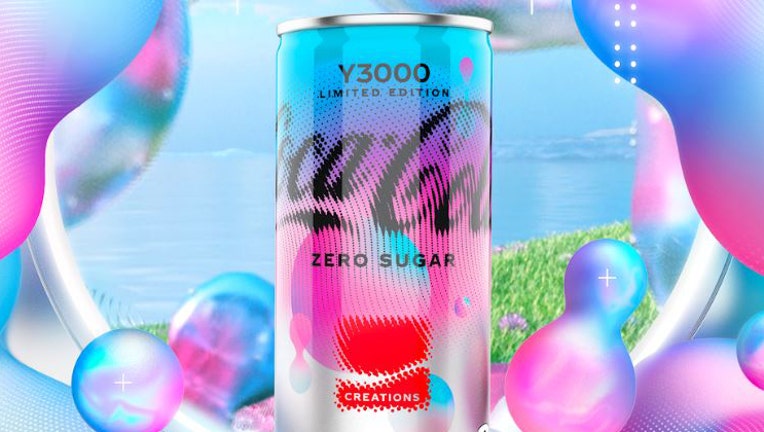
Coca-Cola has released Y3000, a limited-edition flavour produced in collaboration with artificial intelligence (AI) and humans. The AI-designed skinny can, dubbed “from the future,” with a beachy, neon-purple atmosphere, is available for a limited time in both regular and zero-sugar variations. The firm hasn’t divulged how it tastes, but testers describe it as tasting like a raspberry slushy. Coca-Cola researchers gathered consumer flavour preferences to better grasp what the “future tastes like.” To generate the flavour profile for Y3000, this data was placed into a proprietary AI system.
Coca-Cola expects that its brand will be as relevant and refreshing in 3000 as it is now
AI was also used to create the can’s futuristic packaging, which features a pixelated logo, sleek chrome tones, and flashes of purple, pink, and blue. According to the company, the design portrays liquid in a morphing, evolving condition, stressing a bright future. The Coca-Cola Y3000 will be available in both regular and zero-sugar varieties. Coca-Cola Y3000 Original Taste is available to consumers in the United States, Canada, and Mexico. The zero-sugar type, on the other hand, will be accessible throughout the United States, Canada, China, Europe, and Africa. The business intends to investigate the concept of what a future Coke would taste like and the experiences it could unlock.
Coca-Cola expects that its brand will be as relevant and refreshing in 3000 as it is now. They hope to demonstrate their dedication to innovation and adaptation by challenging themselves to produce a futuristic flavour utilizing AI technology. Coca-Cola’s goal for a positive, changing future in the beverage business is exemplified by the limited-edition Y3000 taste and its distinctive container design. According to several projections, the use of artificial intelligence (AI) in the food and beverage business is predicted to expand at a compound annual growth rate (CAGR) of 46.6%. The market will grow from $4.46 billion in 2022 to $6.53 billion in 2023. This growth is driven by the increasing use of AI in areas like supply chain management, quality control, and product customization to meet changing consumer preferences.
